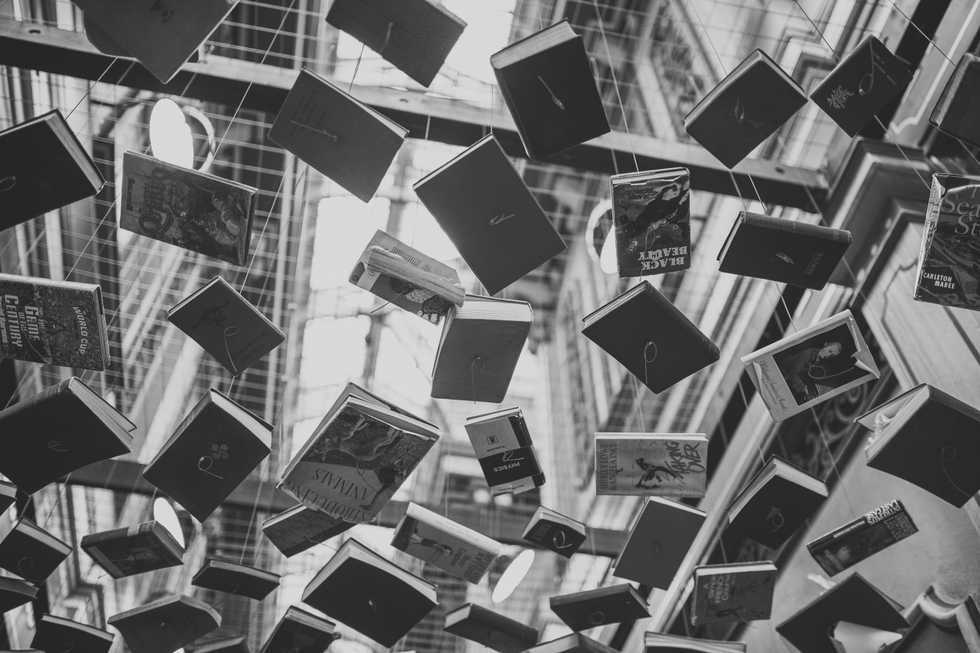Being an English major is amazing for many reasons. In my past two years of being one, I've learned how to think critically and properly articulate an argument all while being able to read incredible pieces of literature (and write a few pretty awesome papers, if I do say myself).
Another vital skill I've learned during my journey as a literary learner is the art of faking it 'til I make it. Whether it's somehow writing three paragraphs in response to a nonsense prompt or critically analyzing and discussing an article I only had time to skim, I'm fairly good at pretending I know what I'm doing.
It's like adulthood, only it's literature instead of life.
What I've mastered the most, however, is talking about books that I've only mildly heard of. When I tell people I'm an English major, they automatically assume I've read every book in existence, and they try to talk to me about their favorites. Newsflash: I have not.
However, I also have a rep to protect.
So, inspired in part by a Sparklife article (not that I ever get on Sparknotes, as an English major...), here are five classic books I've never read (or have I?).
1. "The Scarlet Letter" by Nathaniel Hawthorne
Ah, yes, "The Scarlet Letter." A classic American novel detailing the hardships of Hester Prynne as New England Puritan society punishes her because of an affair with the local minister.
This is often taught by American high schools because of the rampant symbolism throughout the plot. A notable symbol is the red letter "A" that Hester is forced to wear as a result of her indiscretions. I wonder if we today could classify that act as slut shaming?
2. "Jane Eyre" by Charlotte Brontë
The Brontë sisters are all geniuses in their own right, as they each have an interesting take on the 1800s England society they lived in. "Jane Eyre," while a bit romanticized, is no exception. Jane is a woman who, after spending time in a dismal boarding school and a terrible place of employment, finds herself a governess of a young girl at Thornfield Hall.
However, more interest is in Mr. Rochester, the mysterious master of the house. Eventually, Jane and Mr. Rochester end up together, after battling a crazy fire and an even crazier surprise wife. Mr. Rochester also becomes blind then un-blind in the matter of a few chapters, which is a mild cop-out to make a perfect ending on Charlotte's part, if you ask me.
3. "Frankenstein" by Mary Shelley
Written by the mother of science fiction herself (and we can fight if you want), Mary Shelley was a revolutionary in a time when few women writers were being recognized in Great Britain. Filled with lots of murder and lots of grief-stricken death, Doctor Victor Frankenstein becomes fascinated with figuring out how life is created. He makes a body out of old parts, but when it comes to life, Victor becomes thoroughly terrified of what he has done.
The rest of the book details various scenes of Victor fleeing the monster and the monster becoming more wise and more miserable because of it.
What you should take away: Frankenstein is the doctor. The monster is insanely smart. Many deaths happen in cold, northern areas.
4. "1984" by George Orwell
A dystopian novel set in, you guessed it, the year 1984, follows Winston Smith as he begins to rebel against the Party, the government group in charge of how all people think and act. The Party is led by Big Brother, an ever-present entity that reminds citizens that they are not individuals.
Winston begins writing in a diary and seeing woman named Julia, both actions being highly against the law. The more independent Winston becomes, the more his suspicions of the government and Big Brother grow. However, the end comes about with the Party discovering Winston's individuality and basically torturing it out of him, physically and emotionally.
This book is slightly trippy because, being written in the 40s, "1984" was technically set in the future. Thankfully, we as a society haven't become so Big Brother-esque. *looks around for cameras*
5. "Fahrenheit 451" by Ray Bradbury
This book infuriates me every time, because it's about burning books. Guy Montag, a "fireman," is charged with burning all forms of literature in a dystopian society where no one thinks for themselves and instead watches TV all day. However, he eventually learns that literature has much to offer, quits his job as a fireman, and joins a resistance group that memorizes great works for future generations.
FUN FACT: 451 degrees Fahrenheit is the minimum temperature needed to burn paper, hence the title. Good old Ray and his bluntness.


















